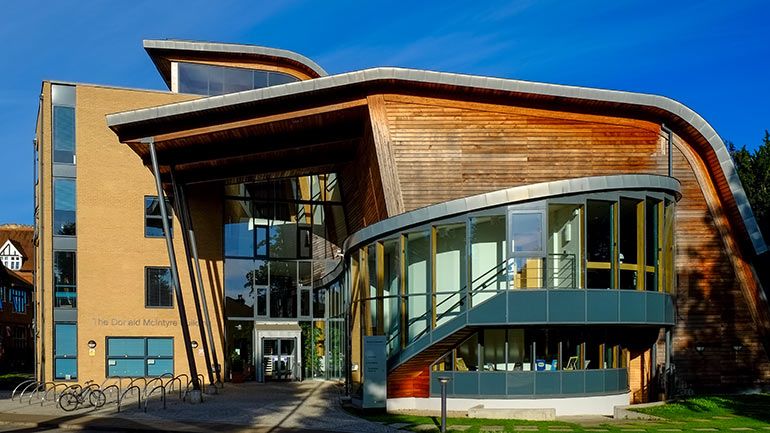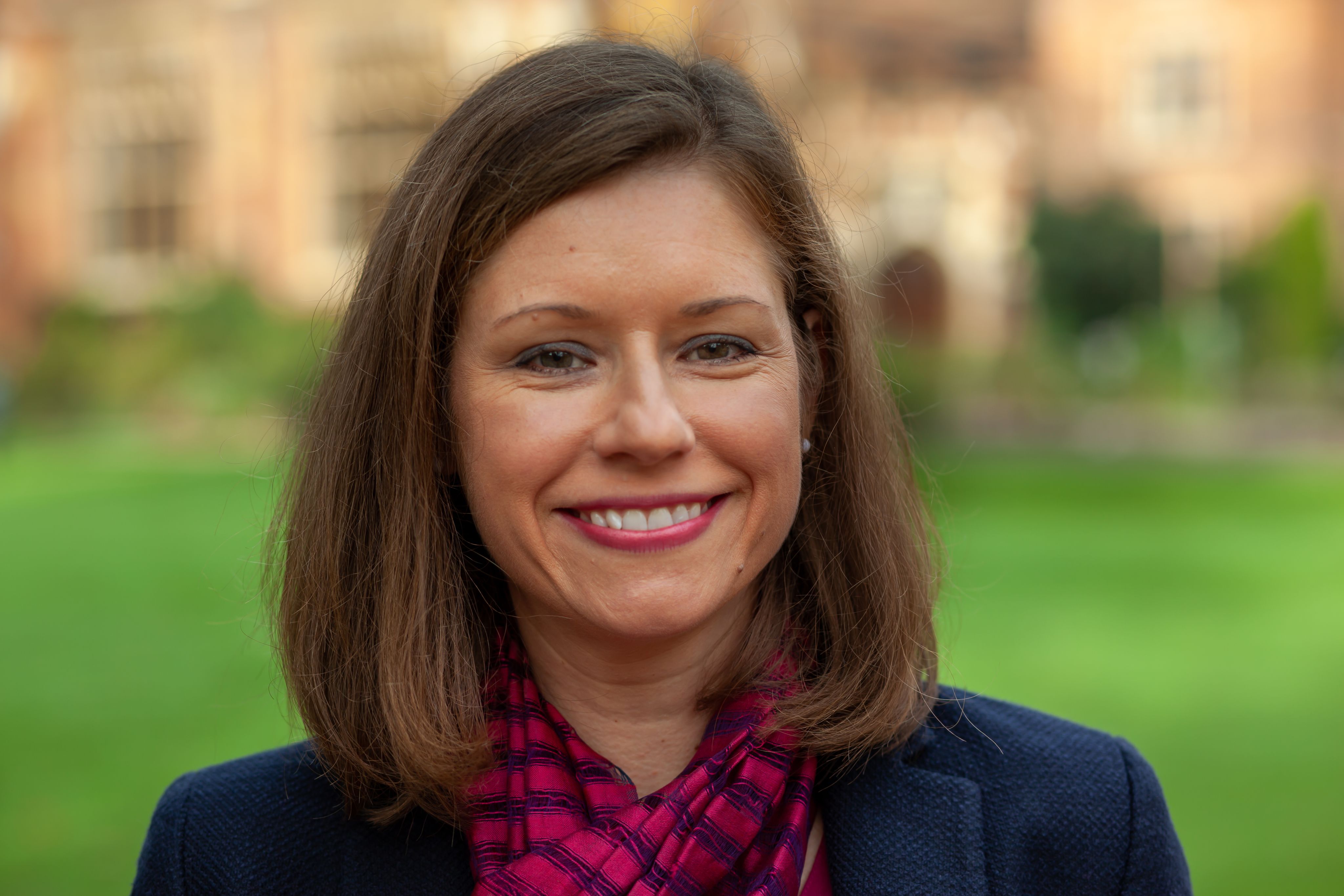Sara Baker
The Darwin Vice-Master and Professor of Developmental Psychology and Education explains how researching behaviour allows us to tailor early education, and how her four-year-old twins provide the perfect study.

For Darwin Vice-Master Prof Sara Baker, defining herself as an educationalist was a recategorisation which only occurred when she took up a role at Cambridge University’s Faculty of Education. Although always interested in children’s development and learning, with a particular focus on the early years, her prior career had been within the realm of psychology and cognitive brain science.
“The Education Faculty at Cambridge is so big, and it has a good reputation across the disciplines, from historians to psychologists,” she explains. “But it also has more connection with educational practice than I’d had before, and I’ve learned much more about what matters to educators.”
American by birth, Sara grew up attending international schools in Belgrade, Vienna and Paris from the age of 11. She completed her Maîtrise in psychology and cognitive neuroscience at the University of Paris 8 Unit, before gaining her Masters and PhD at the Rutgers University Center for Cognitive Science.
“I originally applied for a PhD in cognitive science, but I ended up specialising in developmental science during my doctorate,” she says.
At Cambridge she is Professor of Developmental Psychology and Education at the Faculty of Education, where her research uses methods from experimental psychology to look at large groups of children while considering the climate of the classroom and assessing the impact of that environment.
“We’re looking at the differences between children, but also differences of behaviour in the same child, and what’s going on in a classroom when you see a child being more or less self-regulated,” she explains.
Children’s equilibrium was rocked by the disruptions to routines and learning as a result of the Covid-19 pandemic, with surveys in the summer of 2020 very quickly reporting that children were having greater difficulty than usual in regulating their own emotions. Although the very young children whom Sara’s research focuses on were not yet in education when the pandemic hit, the knock-on effect on schools, parents, and therefore on children themselves has continued.
Sara works internationally, for example as a Science of Learning Fellow for UNESCO in 2022. Her research on inherent individual differences of behaviour uses a synthesis of evidence-based strategies.
“They won’t all work with all kids – that’s where the judgement of parents and educators comes in.”
For the past four years, Sara has had the ideal controlled experiment in place at home, in the shape of her twins on whom, naturally, she has tried out many of the behavioural techniques she has encountered.
“Having twins takes the pressure off in some ways as you see that there really is no right way of doing things – every child is different. It’s reinforced my awareness of that. For example when we practice techniques for calming down, one of them really responds to breathing exercises, and the other responds better to counting. I’m very receptive to the idea that there are different pathways better suited to different children.”
Through a grant from the Nuffield Foundation, Sara has been able to draw together research identifying commonalities in different forms of effective approaches to create free, flexible resources for teachers, parents, and early years staff. She delivers training to local government associations, and popular webinars explaining her findings.
She is also involved in a longitudinal study, funded by the Lego Foundation, looking at children’s play in Bangladesh, while a sabbatical last year allowed her to spend time as a researcher in residence in a nursery.
“There’s so much that we don’t know,” she says of the continuing appeal of her field of interest. “Psychology as a scientific discipline is relatively young, and the methods we can use are relatively recent. Within that you have to develop very different methods to work with young children. So combining early childhood psychology with the idea that science can be applied in practice feels like a new frontier.”

Sara Baker
Sara Baker
